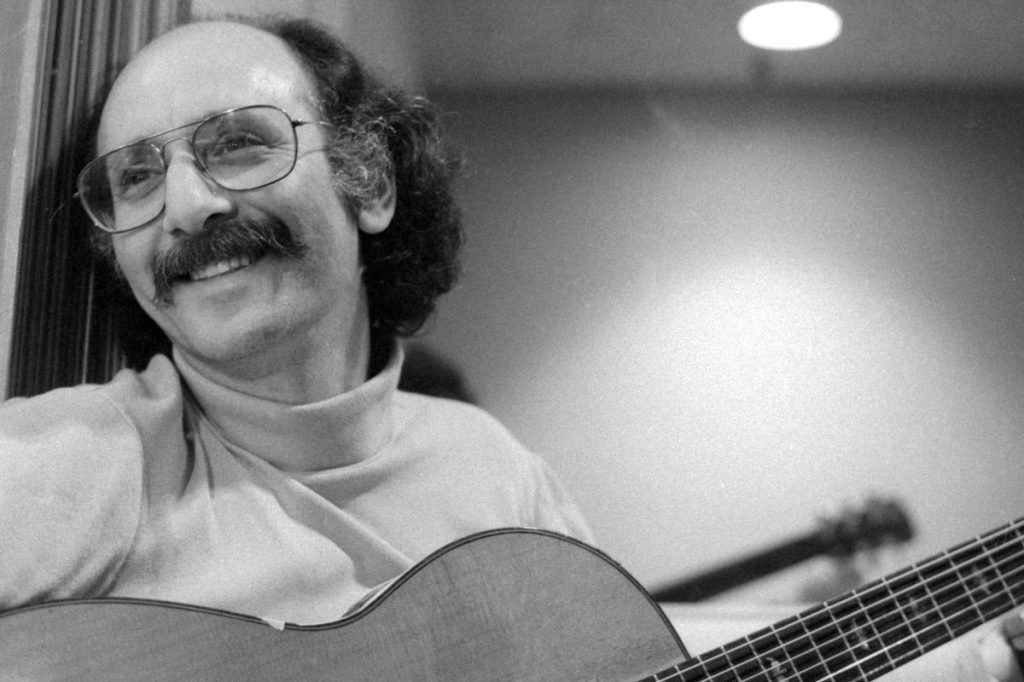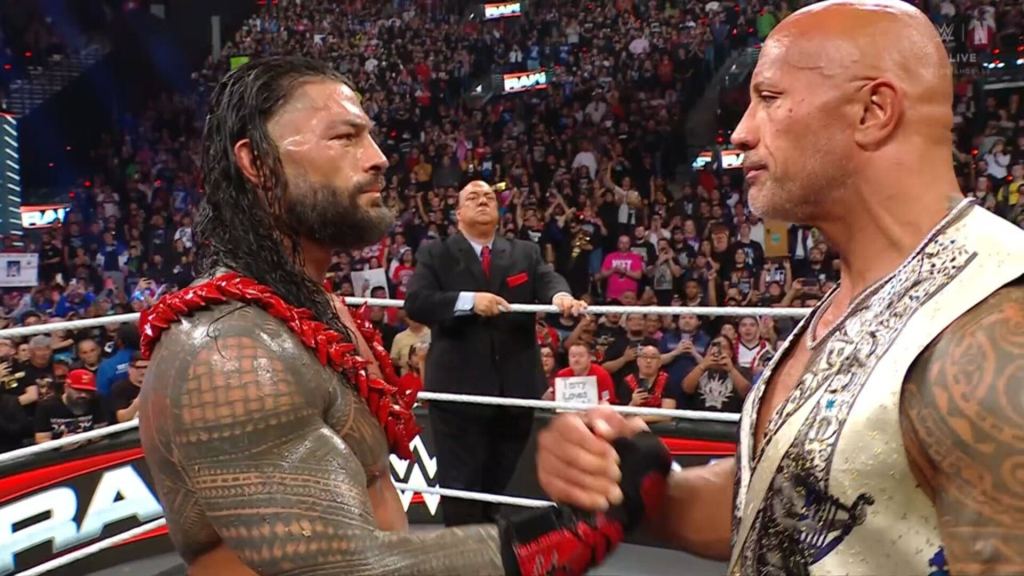Illustration by John Garrison
It’s easy to be brazen when you’re young. Audacity is more friend than foe, which is something we often forget as we grow older and fold into a more rigid version of ourselves. On the Yeah Yeah Yeahs’ “Black Tongue” from their searing 2003 debut Fever to Tell, front-person Karen O is combatively—but smartly—sneering at her listeners. O, in her early 20s at the time, sang grievances about boring stability and the construct of coolness. “Black Tongue” is an anthem; it’s a fissure. Perhaps it is just to one person with whom O is quarreling, but one can easily slip into and relate to the haughty defiance of the track. With the huffing and puffing “ha!” and squeaking “uh!” over guitarist Nick Zinner’s tight strings, we know O is not really ready to fuck around—and neither are we when singing it. It’s a matter-of-fact angst doubling as vulnerability, too, that can only come from a person who is young, who doesn’t to give a shit. O growls along through the song until she alternates between high-pitched teasing and bellowing of, “boy, you’re just a stupid bitch/and girl you’re just a no good dick.” These words are (sincerely) iconic.
When the Yeah Yeah Yeahs appeared in New York’s rock scene in the early 2000s, there was nary a band to compare them to. Their carnivalesque Yeah Yeah Yeahs EP from 2001 included cuts “Bang!” and “Art Star”, which featured O fitting the microphone in her mouth and just screaming into it. At the time, there wasn’t really a rock music scene in New York, which almost sounds like a myth. It wasn’t the musically rich place (which is a generous way of saying oversaturated) where rock could thrive or sink, depending on the day. Yet it gave us some of the most influential post-punk indie bands of this century: The Strokes, Interpol, The Walkmen, The Liars, and many, many more. The Yeah Yeah Yeahs get lumped into this group, though they differed from their mostly male counterparts in the genre and scene. Guitarist Nick Zinner and drummer Brian Chase brought a steadiness to their flippant, 70s punk revivalist attitude that complimented Karen O’s carnality. In the midst of O’s thundering performances and declarations, she was soft. She is the spectrum of human emotions captured on one record or even one song. While “Black Tongue” exists on Fever to Tell so does “Maps”, as does “Y Control” and “Modern Romance.”
In recent years, women solo performers or front-people of their respective groups have popped up with similar traits to O’s. Her music is emotionally charged, self-focused and defiant. You can see her fingerprints all over these artists who have come after. Whether you realize it or not, Karen O’s influence is everywhere. She is one of the most influential women in rock in the 21st century. Beyond simply taking up space as a woman (also as a woman of colour) in this industry, O is an important storyteller. In the comparably brief 16 years since the Yeah Yeah Yeahs EP first appeared, and since Fever to Tell, and every record after that she has made with the Yeah Yeah Yeahs or on her own, O has set a foundation of vulnerability, wisdom, and frustration that is both sharp and screaming mad.
It shouldn’t be surprising to know that Karen O is a pop music fan. Born Karen Orzalek in 1978 in New Jersey to a Polish father and a Korean mother, Orzalek found herself entranced by the pop world; anyone from David Bowie to Freddie Mercury and all who fell in-between. Fascinated most by pop star Michael Jackson, Orzalek found comfort in his obvious quirkiness; of his difference to other musicians, and how he harnessed that into a larger than life persona. The signs of his influence are there though, had we been looking: O likes to wear a single leather glove, often fingerless, when performing. In the early days of the Yeah Yeah Yeahs, O was interviewed by The New York Times’ Lynn Hirschberg, who asked about being a woman in the music business. “Well, there have been so few female rock stars,” O had told Hirschberg. “I can count them on my right hand. When I was young, it was more appropriate for girls to imitate Madonna, but I always wanted to be Michael Jackson. I wanted to wear the glove.” As much as the Yeah Yeah Yeahs and O are an archetypal rock band, they are grounded in pop music. Their music is simplistic in the way that punk is but terse and tender, reaching broader topics, similarly to pop songs that are more accessible. Take “Zero” from their third record It’s Blitz (I would argue as the group’s most accessible record): it is a pure pop track in essence—it’s just synthed up with a mesmerizing drumbeat. O was able to, in an industry that revels in its male rock stars, pluck elements from the mainstream and subvert her own genre’s offers and became something extraordinary.
Videos by VICE
Karen O leads her audiences during performances. Almost Bacchanalian, she zips through songs of chaotic restlessness, sexual prowess and gut-wrenching, heart-aching songs of deep love and even deeper loss. In a 2003 feature of the band for Rolling Stone, Jenny Eliscu wrote that O “would douse herself with olive oil so she’d look sweaty when she came onstage. (She stopped after learning the hard way that it stings really bad when oil drips in your eyes.)” Beneath the slickness of sweat, beer—and sometime olive oil—O would crack a broad smile, almost menacing in the early days paired with the music, but so often sincerely joyous and fun. “The adjectives people use to describe me pretty consistently are sexed-up, oversexed or slut,” O told Rolling Stone. “What I wanted to get out of my system with this band was sex and violence and perversion. I’m trying to experience things on a more intense, pure level.”
O performs on a visceral, emotional level and that isn’t simply expressed through her body. O showed us the extremities one can ask of themselves lyrically and performatively. When a Yeah Yeah Yeahs set eventually wound its way to “Maps”, a gripping and beautiful rock love song, perhaps one of the greatest of all time, O transformed herself into the unlikeliest form: a real live person. She is a heart on the track and also when she performs it; beating solemnly and speeding up when the emotions are too raw or slowing down when an end is rearing.
The openness of “Maps” gave way to who Karen O could and would be on Show Your Bones and any future project, including her solo lo-fi Crush Songs. This is when O becomes something more than just a frontwoman in a sort-of punk band in an important scene who might otherwise be a footnote in musical history. Show Your Bones is more confessional, more like a journal and less like a pedestal to scream from, though both are important creative avenues. “I was feeling a little bit more aversion to the more rockish, noisy, kinda histrionic vocals, because I wasn’t relating to it as a 27-year-old or 26-year-old as well as I did when I was 21 or 22,” O told Pitchfork in 2006 about the record. “I felt like the angst fizzled out when we were writing this album, and it was more kinda like a brewing sort of… I don’t know what it was. But it… transformed into something else. It’s still purposeful, but obviously it’s in a different form.” On “Cheated Hearts”, O sings of a break-up so oddly agreeable, cathartic and pure, with the lyrics “take these rings /And stow them safe away /I’ll wear them on /Another rainy day.” She fusses on “Warrior”, giving us a signature guttural scream; defiantly charges against anyone who dared underestimate her on “Phenomena.” On the album closer “Turn Into”, O sings as though daydreaming of an ache by a lover and how to respond to it, almost revelation near the track’s end.
O’s penchant to show us her emotions (and ours, too) is what makes her one of the greats. Mosquito‘s closing track, “Wedding Song”, is for O’s husband Barnaby Clay. Over gentle piano keys—a departure from her ballad-y type tracks being mostly over simple guitar strumming—O sings, “You’re the breath that I breathe” over and over. O married the director Clay in 2011 and had her first child with him a few years later. “Wedding Song” is a fitting closure, of sorts, of how O could express what her heart longed to tell via the Yeah Yeah Yeahs. In 2014, we would see her explore that on her own. Crush Songs, her first and only solo record to date, is an underrated record of influence. O pulled all of her best lo-fi inspired material from prior work (like “Modern Romance”, “Hysteric” from It’s Blitz!, and “Turn Into” or “Wedding Song” from) and stripped them way down on this 14 track album. We hear this influence on Girlpool’s “I Like That You Can See It” or Jay Som’s “(Bedhead)” or Angel Olsen’s goosebump-inducing “Iota”—a feeling that seems and sounds so small and sparse but is overwhelming and important. Wisdom comes from experience and O will be the first to tell any of us that one has to participate in life, head on, to even make art out of it, let alone be a fully functioning human.
Crush Songs is a concept in that O carries us through the motions of having a crush to falling in love to heartache, the latter of which, for a Rookie “Ask A Grown-Up” segment, O had this to impart on her teen audience: “Heartbreak is pretty much one of the most romantic things that could possibly happen to you in your life. It’s way more romantic than staying with your boyfriend for three or four more years…because you get the opportunity to feel the one of the most intense soul shaking kind of to your core, deep and most alive feelings that there is to feel as a human being.”
Sensitivity, too, is an audacious, brazen act. O came up in a time and with a group of men who were very bored by their surroundings and wanted to lament or unpack that discontent. O was too; yet her expression, and occupation of that space, challenged what women could or should do in rock music. While the wild costumes by Christian Joy helped give O a viable, tangible persona, we could hear through that loudness and see a pure humanity that a lot of bands at the time withheld. They wanted to be cool. She wanted to be seen. Our greatest musical influences are great for a reason: they push forward a conversation or movement; challenging and questioning what is around them. In Karen O’s case, she challenges herself, bringing inward focus to a broader audience, while asking us to see and hear our own hearts, too.
Sarah MacDonald is an Assistant Editor at Noisey Canada. Follow her on Twitter.
More
From VICE
-

Screenshot: NetEase Games -

Jon MorganCBS via Getty Images -

Sherry Rayn Barnett/Michael Ochs Archives/Getty Images -

WWE
